Time:
09.00 - 17.00
Location:
Mary Seacole Building, University of Salford, M5 4BR
Cost:
ACPOHE Members - £75.00.
Non-ACPOHE members - £125.
This includes lunch and refreshments.
Study Day 2022!
Come and join ACPOHE in Salford for our first face to face study day since 2019!
The theme of our day is “Bridging The Gaps”. We hope to deliver an interesting day to help participants develop their practice with the four pillars of physiotherapy: Research, Leadership, Clinical and Education.
Physiotherapists, working in any sector, are likely to be working with people of working age. This day is suited to any physiotherapist, not just those working within Occupational Health settings.
ACPOHE Study Day and AGM 2022
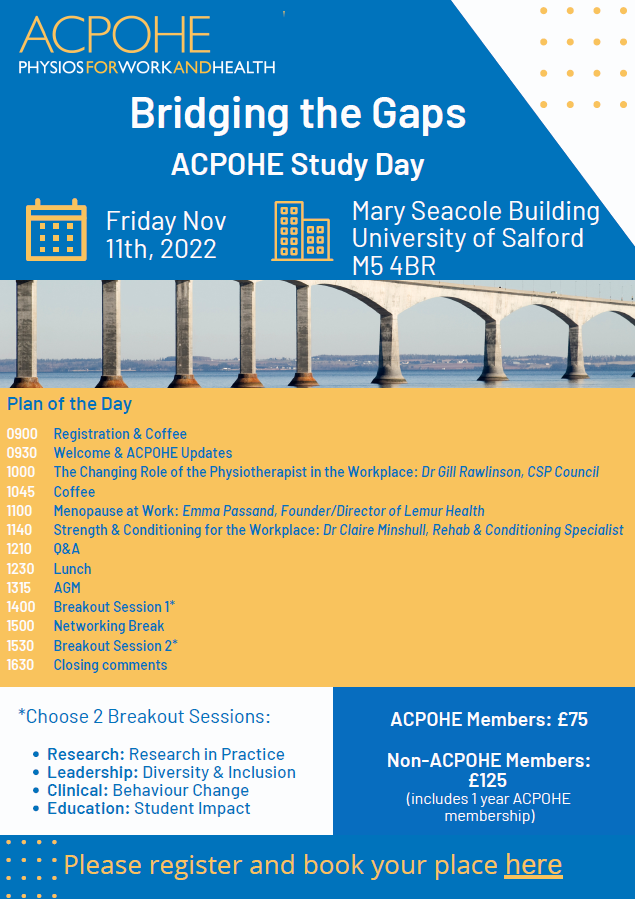
The Plan For The Day
Our study days are always a great opportunity for networking, and there will be plenty of opportunities to connect with others in the industry. Our committee members will also be on hand all day to chat and help people understand how they can bridge the gap to get more involved in ACPOHE. This might be through research, offering student placements, joining working groups to develop guidance, or simply participating in courses or webinars.
09.00 Registration and Coffee
Your first chance for a catch up with colleagues.
09.30 Welcome and ACPOHE Updates
There will be a brief presentation from our chair, Nicola Suckley and other committee members about the hard work and significant progress that has been going on behind the scenes. Learn about the plans to provide members with extra value for their membership in the coming years.
10.00 Our Key Note Speaker
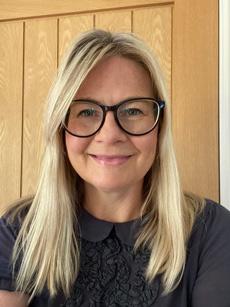
Dr Gill Rawlinson, CSP Council, will be joining us and talking about the changing role of the physiotherapist in the workplace. Gill is currently Director of Allied and Public health at the University of Salford. She started this role in May 2022 after a previous role at the Chartered Society of Physiotherapy (CSP) where she was Interim Director of Practice and Development. She was previously Assistant Director with UK wide responsibility for physiotherapy education and workforce development. In August 2022 after leaving the CSP Gill was elected to CSP council and the World Physiotherapy Education Committee.
She qualified as a physiotherapist in 1997 and after a clinical career specialising in musculoskeletal (MSK) physiotherapy, moved into higher education. Her last academic post was as at UCLan, where she led a multi-professional rehabilitation sciences team after many years as a senior lecturer developing and delivering pre and post registration programmes. Gill has also maintained a clinical role until recently as an MSK advanced practitioner at Salford Royal NHS Trust. She has a passion for public health, behaviour change and person -centred care and led an award-winning service public health service redesign at the Trust, embedding NHS health checks and diabetes checks into the MSK physiotherapy service. She has a PhD exploring adherence and behaviour change within MSK physiotherapy.
In 2017 Gill undertook a two-year national clinical AHP fellowship at Health Education England where she led multiple projects around AHP supply and careers development.
Gill's talk will focus on:
- Applying behaviour change theory to support adherence to supported self-care and long term condition management improving wellbeing and return to work
- Future direction of CSP strategy and education and how the CSP’s work can support its members to improve health and work
11.00 Menopause At Work
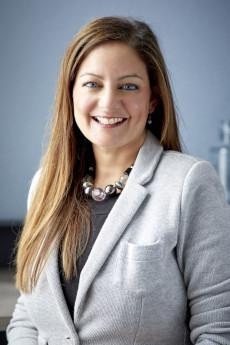
Emma Persand is the founder and director of Lemur Health and Working with the Menopause. She is a qualified nurse and workplace health and wellbeing professional. She completed the Specialist Skills Certificate of Menopause Care and the Cognitive Behavioural Therapy (CBT) Certificate for Menopause symptoms through the British Menopause Society to improve working conditions for all.
Emma is vice-chair of the Society of Occupational Medicine’s Diversity and Inclusion Task Force & will be joining us in the afternoon Diversity & Inclusion workshop.
Emma sits on the European Menopause and Andropause Society’s Task Force, contributing to the 2022 global statement on what health care professionals need to know about the menopause. She is also a member of GMCA’s Women and Girls Equity Panel
Emma is currently working with the British Standards Institute on the new Menstruation Health and Menopause Workplace Guide
The talk will focus on:
- The world of work designed around the male body
- Menopause and its influence on musculoskeletal systems
- Making every contact count: “gender sensitive” approach, symptom recognition, signposting
- How to have a conservation about the Menopause.
11.40 Strength & Conditioning for the ageing workforce
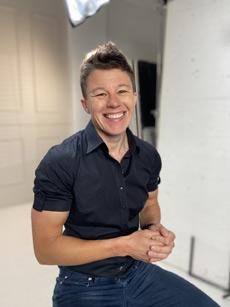
Dr Claire Minshull has worked in the area of sports medicine and health as a Senior Lecturer, Researcher, Consultant and Practitioner. Her area of expertise uniquely spans the gap between the physiology of conditioning and physiotherapeutic rehabilitation. She has designed and led major clinical and non-clinical research trials, supervised PhD students and regularly publishes in and reviews for leading scientific peer-reviewed journals. Claire has contributed to the design of leading lower limb rehabilitation programmes and works with professional athletes to joint replacement patients to optimise physical conditioning and recovery. Claire founded Get Back To Sport to provide evidence-based training for healthcare professionals, internationally and more recently Joint Approach to provide clinicians with an optimised management programme for osteoarthritis.
- How can physiotherapists bridge the gap between traditional physiotherapy skills and S&C to facilitate both injury prevention and rehabilitation strategies?
- Hear how functional exercises can be successfully incorporated into our approach to move away from repetitions of isolated exercises.
12.10 Q&A
There will be an opportunity to put your questions to our speakers.
12.30 Lunch
A buffet lunch will be provided. Dietary requirements can be catered for if indicated at the time of booking. Another opportunity to network before the afternoon session kicks off.
13.15 ACPOHE AGM
All members and non-members are invited to attend the AGM, where the committee will provide further information on their work, the plans for the coming years and an opportunity for members to vote for new members of the committee. If you would like to get more involved in the work that ACPOHE does, do not hesitate to get in touch with our team to put yourself forwards for election to the committee either as a committee member or to support the projects and research we have ongoing. We would love you to get involved.
The AGM will be held virtually on Teams as well as in person. CLICK HERE for more details including a link to sign up for the Teams session to watch.
14.00 Breakout Session 1
A choice of one of the four workshops, designed around the four pillars of practice. See below for details.
15.00 Networking Break
Another opportunity to speak with colleagues and the committee over a cuppa.
15.30 Breakout Session 2
A choice of one of the four workshops, designed around the four pillars of practice. See below for details.
16.30 Closing Comments
Closing comments from our chair, Nicola Suckley.
The Breakout Sessions
All breakout session slides/presentations will be put on the ACPOHE website for all to see afterwards. All four sessions will be added to the ACPOHE Webinar Programme for 2023.
1. Research Opportunities and Networking
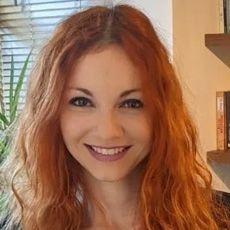
Dr Glykeria Skamagki is a chartered physiotherapist with research interests in occupational health and safety, musculoskeletal disorders and education. She is currently working on projects around sustainable employability focusing on the ageing workforce, women, and those with chronic musculoskeletal disorders.
The session will cover the following:
- Introduction to networking and its value for researchers
- Exploring barriers to developing research in OH and your role
- Building and maintaining your research profile in OH
- Communicating with your network and ACPOHE for future steps.
- Participant will be linked with other researchers within ACPOHE and a supportive plan will be developed.
Opportunities for participating in research will be given too.
2. Leadership – Diversity and Inclusion in ACPOHE & The Workplace

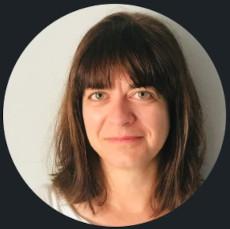
Emma Persand is vice-chair of the Society of Occupational Medicine’s Diversity and Inclusion Task Force. This was established in response to the disproportionate health and work outcomes suffered by certain employees of colour, gender, biological sex, ability, social-economic status, and geographic location.
Colette Owen, ACPOHE Membership Officer, has been involved in Diversity and Inclusion projects within the NHS and private corporations from an employer and employee perspective. Colette is passionate about promoting Physiotherapy & Physiotherapists, and collaboration within healthcare.
The session will focus on:
- ACPOHE members: engagement & opportunities
- How to be “culturally competent”
- How can we, as an individual or group, improve diversity & inclusion in the workplace
- How this is done in a meaningful way.
3. Education – Student Impact in the Workplace
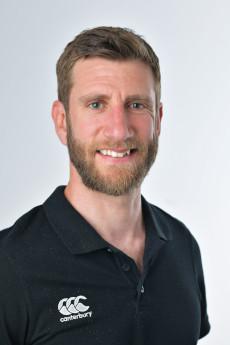
Paul Shawcross, ACPOHE Webinar & Education Officer, will lead this workshop. Paul has worked in a national clinical lead role, consulting on musculoskeletal and health for various UK businesses and setting up services to support people with disabling pain conditions to return to employment. Working at the University of Salford since 2021, Paul teaches about work and Health in BSc and MSc physiotherapy courses and has a particular interest in practice-based learning, where he believes students can make a real impact.
The session will provide examples of where students have made a real impact on work and health practice within their practice placements and promote discussion around how we as individuals, groups and employers can further this impact in the future.
4. Clinical – Behaviour Change
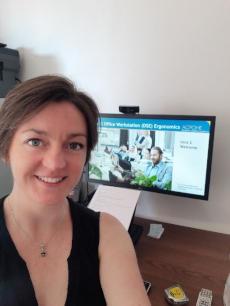
Juliet Raine, ACPOHE Education Officer, will lead this workshop. Juliet has been working in ergonomics since 2008 and specialises in non-flexible work environments where the way to reduce injury often involves a behavioural change programme, not simple adjustments to equipment.
Physiotherapists are often asked to reduce injury in a variety of work environments and, where possible, risk should be reduced as far as possible by eliminating tasks, the use of aids or the provision of training but this is not always the answer. Manual handling training has evolved in recent years and gone are the days of teaching employees to lift a box (unless that is really what they do). In many industries, lack of movement, poor safety culture/behaviours and incorrect use of the environment or equipment means that level of risk remains high.
So how can physiotherapists bridge the gap between a holistic ergonomics approach and a workforce who are often convinced that they must be provided with adjustments that are classed as unreasonable due to costs or long lead time in business planning preventing immediate change?
This workshop will use examples from real life examples from the rail industry to help participants understand how best to investigate which stakeholders are involved, how to get buy-in from the top down and bottom up, deal with unions, ensure active participation and drive real behavioural change to really reduce injury and improve wellbeing.
Cost
ACPOHE Members - £75.00.
Non-ACPOHE members - £125.
This includes lunch and refreshments.
Location
Mary Seacole Building
University of Salford
M5 4BR
Morning session & lunch: Room 193
Afternoon breakout session locations: Rooms 122, 151, 243, 169/170.
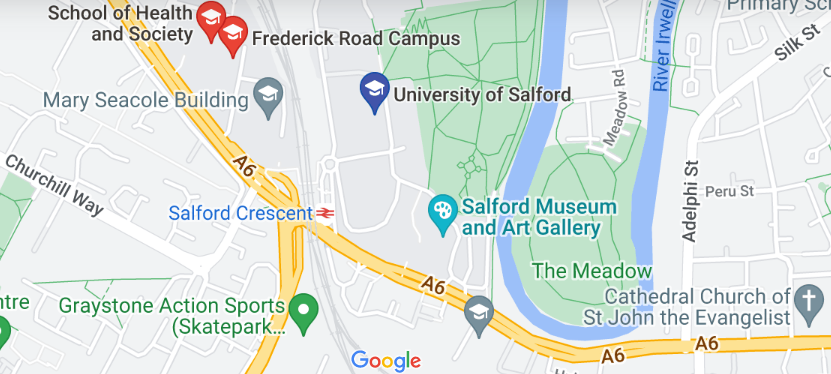
Getting there and away
By Train: Salford Crescent station is located next to the Frederick Road campus. Direct services run to and from Manchester Airport, Manchester Piccadilly and Victoria.
Watch out! Don’t mistake Salford Central for Salford Crescent, otherwise, you’ll end up with a 20 minute walk ahead of you.
By Bus: You can get on any of the following buses which will take you to the University front entrance for Fredrick Road Campus: 8, 34, 34A, 36, 37, 38, 50, V1, V2.
By Car: If you're travelling to us by car, spaces in our car parks are limited, so please do plan ahead of your visit. Find out more about parking at our University, including costs and parking locations by clicking this link: https://www.salford.ac.uk/estates/car-parking
For directions or any further travel information, please click here: https://www.salford.ac.uk/travel
How to book your Study Day place
Use the booking link below to book your place for the study day now. Tickets are limited and based on a first-come first-served basis.
You will be asked to select your breakout sessions in order of preference during the booking process. This will allow us to plan the rooms used for each session. Wherever possible, participants will be allocated to their first two choices.
Please make sure you indicate any dietary requirements during the booking process. Please also book the correct type of membership ticket.
*** Non ACPOHE members: to take advantage of our reduced ticket rate for ACPOHE members and the other benefits of being an ACPOHE member for just £50 for a year, you can join ACPOHE first by clicking on this link, then click on the link below to book your Study Day ticket. ***
Need help?
Send an email tostudyday2022@acpohe.org.uk.
